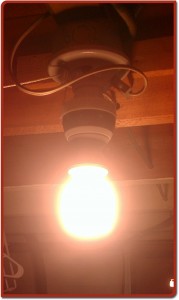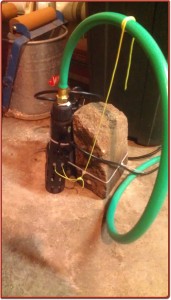I don’t know about you, but my life is really busy. Seems like I’m always trying to juggle a million competing tasks and commitments, and keeping track of them is challenging. I use Remember The Milk Pro for to-do lists, but I have lots of them and they’re overflowing. I know a lot of folks in similar situations.
I’ve started trying to pay attention to what I’m calling lean optimization, by which I mean two things:
- Small changes that don’t take a lot of time to implement
- Changes that reduce waste: of time, of resources, of money
I studied performance improvement in grad school, and I found compelling evidence for the idea that a lot of our ability to perform well in life and work comes from environmental factors rather than personal ones. Basically, you can often make small changes to your workplace or workflows that give you free performance boosts forever with almost no effort.
As I’ve worked with this concept with people over the last few years, I’ve noticed something else, and I’d like to introduce a term: microaggressions. I learned it in discussions about oppression and privilege, and it originally described the way that little things like women feeling slightly unsafe when walking alone at night can add up to make people feel really bad—even though each individual episode is small. That’s the sense in which I’m using it here: the sort of occurrence that seems benign when it happens once but becomes overwhelming when it happens often.
I think most of us have microaggression triggers in our personal and work lives. It might be the sense of dread you feel when you open your inbox and find 700 unread emails, or it could be the feeling of shame from paying a bill late. Maybe you beat yourself up for missing an appointment or forgetting a visit with a friend. Maybe you drop your groceries while you hunt for the light switch after work.
None of these things is huge. But add them all up, and they make a big difference. Most of them are so small that traditional time management techniques don’t bother with them. I’m arguing that these areas are low-hanging fruit and deserve our attention first, to clear them out of the way and leave capacity for dealing with bigger stuff.
Lean optimization
Thus lean optimization. Find the psychic leeches that bleed your attention every day and pour salt on them. Look for small actions that give measurable improvement and try them for a while. My point is that these are small things that carry wildly disproportionate negative effects on happiness, creativity, and productivity. Every item you can optimize or automate leaves your brain more free for dealing with the big stuff.
Hunting microaggressions
Here are some ways to find the things that might be ripe for lean optimization or automation.
Look for things you do frequently
Start by looking at things you do most days. If you add up their time costs, it can get big pretty fast.
I bought a new computer this year. I use a computer 10+ hours a day, and my old laptop was five years old and slow. It had some hardware malfunctions and a bunch of software issues that multiple OS fixes hadn’t improved. It would take 10 minutes to wake from sleep, and its battery life on a full charge was 19 minutes. I finally bought a new one, and it’s been astounding to see the huge effect on my life of not having those microaggressions—maybe even macroaggressions!—from a slow computer. I hadn’t noticed how furious it made me to wait five minutes for a web page to load.
Perhaps more important, I hadn’t noticed the ways my bad computer was destroying my creativity and productivity. I stopped writing music because my notation software took 15 minutes to load. I stopped recording music because the computer was so slow that my recordings would glitch and fail. I stopped working with photos because the software was too slow. A bad computer was the bottleneck that trashed a lot of what I valued in myself. Look how many articles I’ve written since getting the new one compared to the months before.

I started installing motion-sensing light sockets in places like my basement and the hallways at work. Initially this was to stop wasting money, because people were leaving the lights on all night by accident. But it turns out that having the lights come on automatically is a huge boon when I’m carrying stuff in both hands, which happens all the time. These are First Alert Motion Sensing Light Sockets, and they’re $20. They can install into almost any light socket, and they work with regular light bulbs. Huge improvement.
I had never noticed the small amounts of effort I spent on finding light switches in the dark. Now, I don’t even think about it.
It doesn’t have to be about stuff—this can be process optimization too. I used to let my desk get totally clogged with receipts waiting to be entered into my finance software. A few months ago, I bought a file folder for organizing all receipts by month once they’ve been entered, but the important point was the rule I set: receipts are only allowed on the desk when I’m actively entering them. Otherwise they have to stay in my wallet or in the file folder.
This means that I no longer think about where to put receipts. They go in my wallet (or in my in-basket if they’re too big for the wallet). Once I’m ready to enter them, they’re allowed on the desk. As soon as they’ve been entered, they go immediately into this month’s space in the file folder. No thought, no microaggression. I was surprised by how much energy a glut of receipts could steal from me.
Look for things you worry about
Worries are really high-strength psychic leeches. People in the mental health world are saying that anxiety disorders are the fastest-growing category of complaints among new patients, and I believe it. Anything you can do to cut chronic worries out of your life is going to have great effects.

Our basement leaks a lot when it rains, and I used to come home and find water pooled on the floor, several inches deep. We don’t have a sump, so we can’t have a standard sump pump. So it used to be manual pumping, every time. I noticed that I was worrying about it every time it rained.
So I put some effort into finding a creative solution. I learned about floor sucker pumps and automatic pump controllers that would work without a sump. I built a system, tweaked it a little, and now it works perfectly. It has a hose that runs into our set-tub, and it automatically pumps out all the water as soon as there’s more than 1/2″ of water on the floor of the basement. It works really well. (If you’re interested, Superior Pump 91250 and Basement Watchdog BWC1.)
An $85 one-time expense and that worry about the flooded basement is gone.
My band, Frost and Fire, put out a new CD this year. (It is super-awesome and I would love to sell you one. They’re $15 and you can get them at our website.) I’ve been the person in charge of packaging and shipping all those CDs, and thanks to Lyme disease I get scared about forgetting stuff. So I was worried about taking people’s money and forgetting to mail their CDs. Low-grade anxiety, but it was there.
So I built a system where most people buy their CDs via PayPal, and I included a unique product code in the receipt. All the receipts get emailed to me, and I have my email set up to automatically flag anything with that code as important and bring it to my attention. It took seconds to set up, but it’s really helped me to let go of worrying about the CDs.
Worried about forgetting to pay your credit card bill on time, getting hit with late fees? Set up an automatic transfer from your bank that makes a minimum payment for you each month a week or two before the due date. Then you pay your bill as normal, subtracting that amount. The point is that if you miss it, you’re still covered, and you never have to worry about it again.
Look for things you need to do fast
If you rely on speed for certain tasks, it’s worth optimizing them.
In a hurry in the morning? Pick a place where you always put your keys, so you can stop having the microaggression of hunting for them.
Look for things that waste resources
This is where I started with the lights thing, although that ended up improving other areas too. It’s why I changed banks, because the old bank’s fees were wasting money and my irritation about it was staining the rest of my life.
As a starting point, you might look for ways your life is squandering:
- Money
- Time
- Food
- Gas
- Personal connections
- Opportunities for future growth
- Intelligence
- Drive and motivation
- Goodwill
- Happiness
The last one is important. I’ve found it really valuable to prune things that used to thrill me but are now sapping my happiness. This is obvious but worth repeating.
The takeaway
We often think that big changes are necessary if you want to see big results. I’m arguing that small changes, if you make the right ones, often have huge effects in how your life works.
Think of a lean optimization approach whenever you repeat a task or feel irritated by it. Is there a way you can try a small change and see how it affects things? Can you automate the task, make it atomic and uninterruptible, or change it somehow to get it out of your headspace? Can you neutralize its microaggressions?
Fixing this stuff really pays.
Got examples of how you’ve used this approach? Leave a comment or ask a question!






Interesting article! But wanted to let you know that your link to the CD page is missing the “http://” at the beginning, so it doesn’t go to the right place.
Thanks very much for the catch, Jed! I guess the http:// must have gotten stripped out somehow. Anyway, I added it back, so it should be working better now.
Great article! I think like this too, and I can tell we are related. I spent the morning at the Container Store, came back and reorganized Restaurant coupons, so they will always be in an alpha file in my car. I also bought a big fabric bin to put under my office desk, to hold chips and snacks so I only have to carry a sandwich and water to work daily.